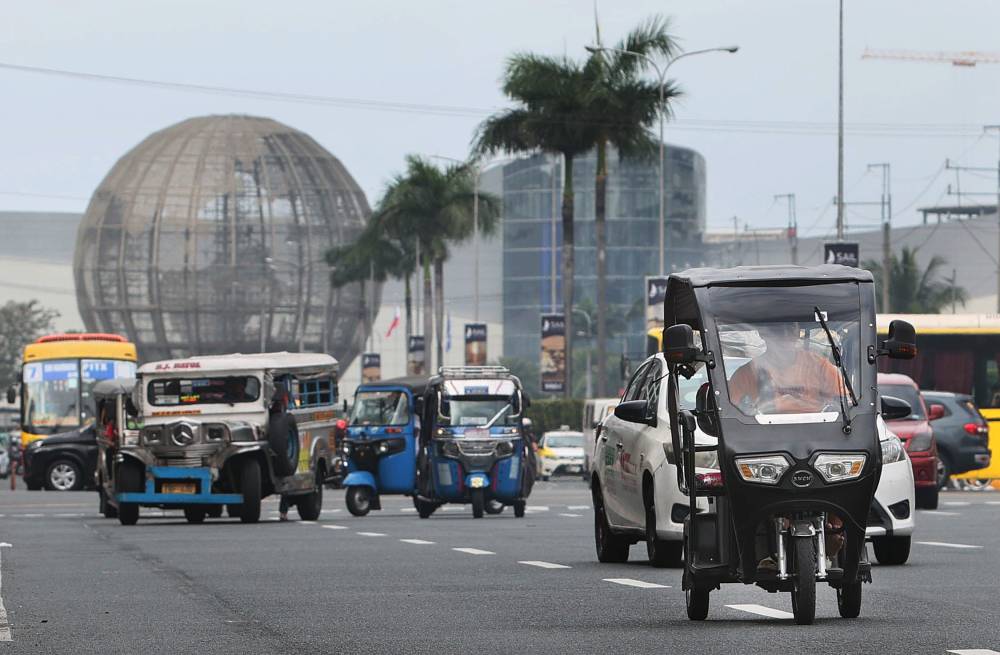DILG asked to recall ban on 3-wheelers on nat’l roads

‘E’ FOR EXCLUDED Electric tricycles, or e-trikes, and other unregulated electric vehicles like these seen near SM Mall of Asia in Pasay City, are prohibited on major roads in the National Capital Region, based on a resolution approved by the Metro Manila Council (MMC). —photo by Marianne Bermudez
MANILA, Philippines — A ranking House lawmaker on Tuesday asked the Department of the Interior and Local Government (DILG) to rescind its policy banning three-wheeled vehicles on national highways.
During a hearing by the House committee on ways and means, panel chair and Albay Rep. Joey Salceda questioned what authority gave the DILG the power to issue Memorandum Circular No. 2020-36, which prohibits three-wheeled vehicles like tricycles and pedicabs from plying national highways.
READ: Strict enforcement of e-vehicle ban on major roads starts
While the memorandum does not explicitly cover other three-wheeled vehicles, like the modern symmetrical three-wheeled cars that are distinct from “for-hire” tricycles and pedicabs, Salceda said the vague ban has “created confusion, especially in provinces where there are very [few] end-to-end transport options.”
According to him, he got reports that the memorandum was being “used as an excuse to ban nonconventional vehicles that are perfectly capable of plying national roads from using the same roads, despite currently being charged the MVUC,” referring to the motor vehicle user’s charge.
Article continues after this advertisementBeing charged with the road user’s tax, he said, “should mean they could use the roads.”
Article continues after this advertisementThe DILG issued the memorandum by invoking the Local Government Code, which devolved the franchising of these vehicles to the local governments.
This did not sit well with Salceda, who argued that even the “most liberal reading of the Local Government Code would also reserve its powers to the local government, not to the DILG.”
He also reminded the agency that it was the Department of Transportation’s mandate to, among others, regulate modes of transportation and not the DILG.
Salceda raised the question during the deliberation for House Bill No. 10038, which imposes a road user’s tax on three-wheeled nonconventional vehicles.
He called on the DILG to “limit itself to its mandate of supervision of [local governments], not imposition of rules or usurpation of their powers or that of other agencies.”